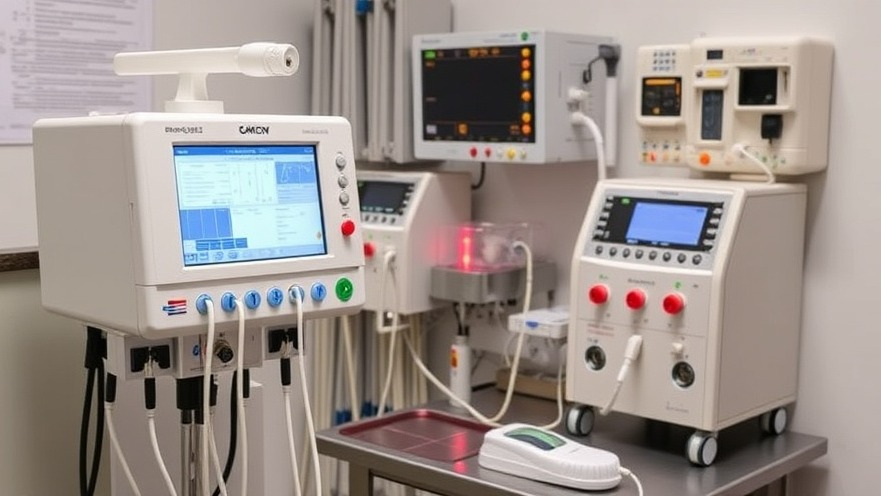
Understanding Tariffs: A New Challenge for Medical Practices
In today’s rapidly evolving medical device industry, the landscape is becoming increasingly complex due to the volatility of tariffs imposed on essential components. This podcast episode features insights from Rohit Harve of PA Consulting, who emphasizes that these tariffs not only influence pricing but also have far-reaching effects on healthcare providers, patients, and ultimately the quality of care available.
How Tariffs Will Shape Cost Structures
One of the key points raised is that the costs incurred from tariffs are largely expected to be passed onto consumers. For concierge medical practice owners, this means that the financial implications of these tariffs are not merely abstract economic concerns. The additional costs on components, particularly semiconductors and other materials, impact profit margins, which could necessitate adjustments in how services are priced and offered.
Competitiveness Concerns in the Global Market
As tariffs increase costs for U.S. medical device manufacturers, there is a palpable worry regarding their competitiveness on the global stage. The burden of tariffs could result in U.S. companies being unable to innovate or scale effectively, thus diminishing their standing against foreign firms that operate without such constraints. Concierge practices relying on advanced medical technologies might find themselves facing higher prices and potentially limited access to state-of-the-art solutions for their patients.
The Supply Chain Dynamics and Reshoring Challenges
Rohit highlights the complications that tariffs introduce into supply chains, as manufacturers search for local suppliers to mitigate cost increases. However, the journey towards reshoring complex manufacturing operations to the U.S. presents significant challenges, from longer lead times to skill shortages in the workforce. For concierge practices, this reality might mean delays in obtaining innovative medical devices crucial for patient care, which can ultimately affect practice reputation and patient satisfaction.
Lobbying and Advocacy: The Industry Response
The uncertainty created by tariffs has led to active lobbying efforts within the healthcare sector. Medical professionals and industry stakeholders are banding together to advocate for policies that minimize the impact of these tariffs on the medical device industry. As leaders in concierge medicine, understanding these dynamics is crucial for practice owners who aim to stay ahead of regulatory challenges and strategically position themselves as market leaders.
Navigating the Future: Preparing for Tariff Adjustments
The podcast touches on the unpredictable nature of tariffs and how this uncertainty can complicate long-term planning. Practice owners are encouraged to develop strategies that include financial forecasting and flexibility in operations to better weather any forthcoming adjustments. Emphasizing efficiency and product quality will be crucial for those looking to maintain a competitive edge.
Practical Insights for Concierge Medical Practices
So, what can concierge medical practice owners do to prepare for these shifts? Tariffs are but one piece of the puzzle; navigating their implications will require a multifaceted approach. Start by conducting a thorough analysis of your current supply chain and anticipated costs. Consider forming partnerships with manufacturers capable of accommodating the challenges posed by tariff fluctuations. Furthermore, enhancing your operational efficiency and patient communication can inspire trust and transparency during these uncertain times.
In closure, understanding how tariffs affect the medical device industry is essential for concierge medical practice owners aiming to maintain their market leadership. By staying informed and prepared, they can ensure the highest standard of care for their patients.
As these discussions highlight, awareness and proactive strategies are vital. It’s not just about managing costs—it's about securing the future of your practice in an era defined by complexity and regulatory challenges.
 Add Row
Add Row  Add
Add 






Write A Comment